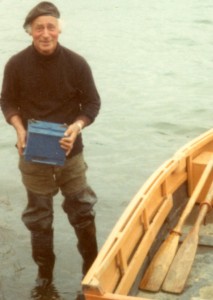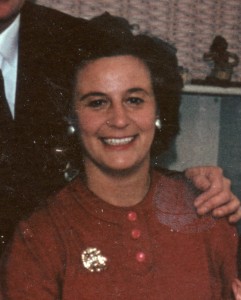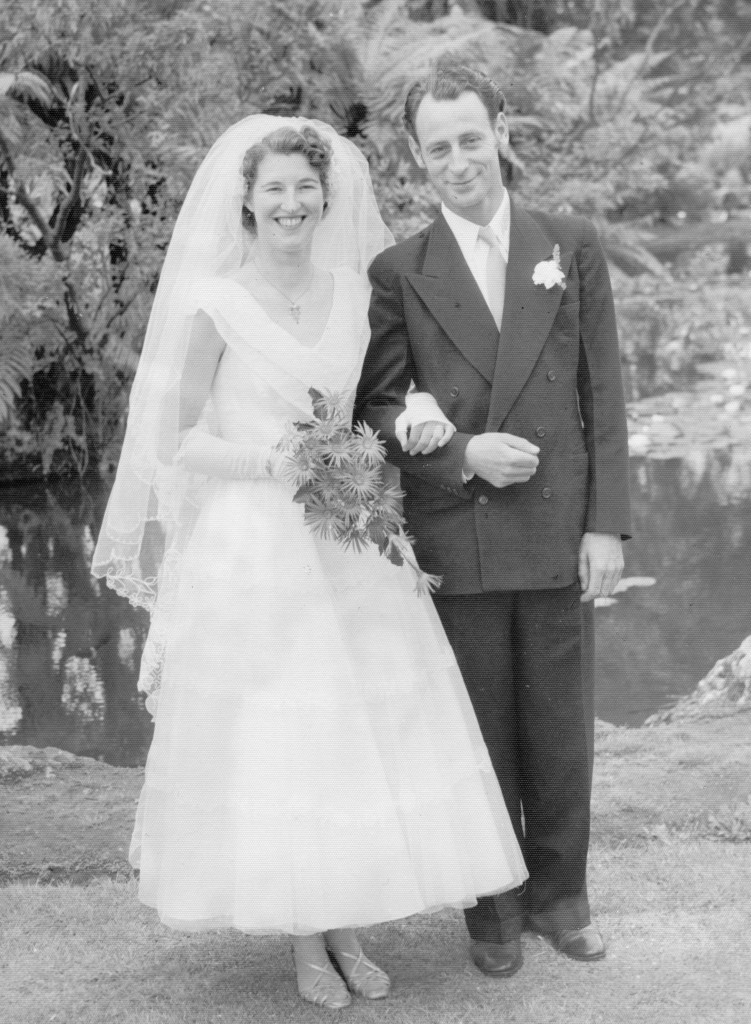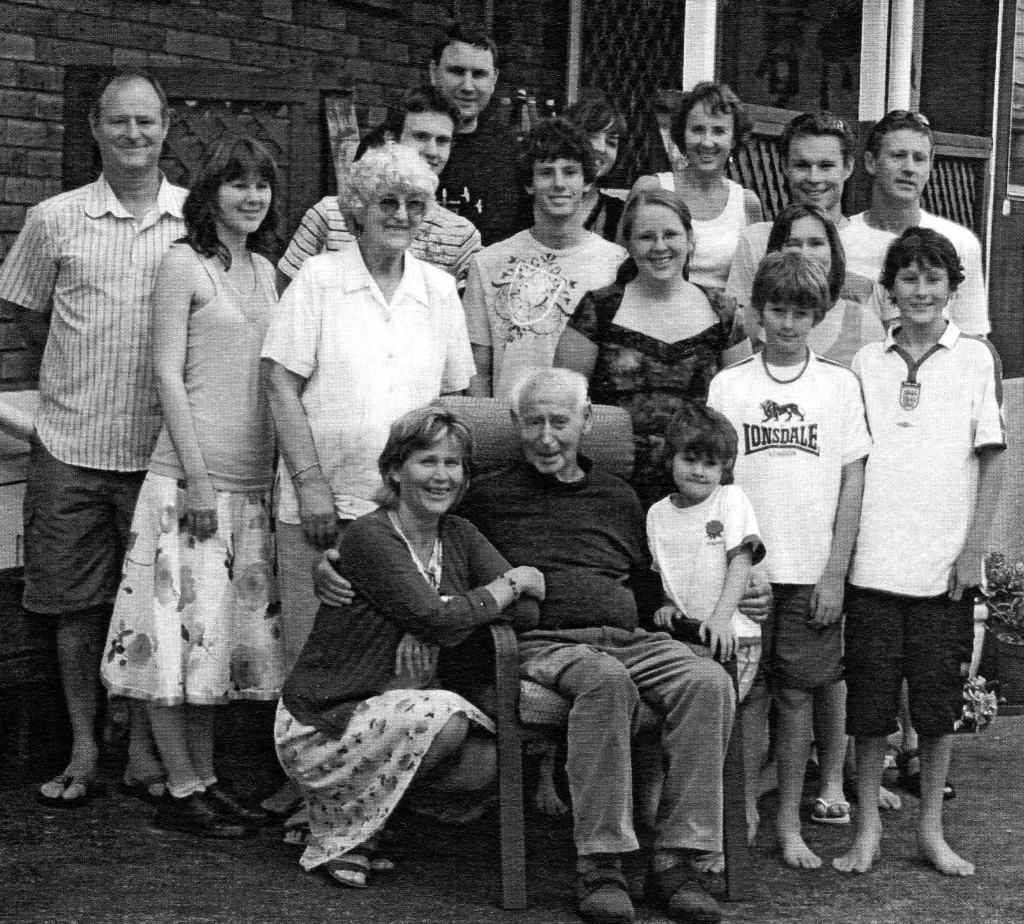Theo didn’t talk a lot about his childhood, or about his time as a teenager and young adult during WWII (as they were painful memories), however some of the stories he told his family are below.
NB: In researching this side of our family we were surprised to find out that Theo was the youngest of six children, although the first three died when they were young (before Theo was born). Theo grew up with his siblings Jan and Han.
CHILDHOOD:
Theo was the youngest child of Johannes Albertus (“Hans”) Allis and Johanna Bouman. Theo said he had a happy childhood. His older brother & sister (Jan and Han) used to call him “de kleine,” little one, because he was the youngest. The three childre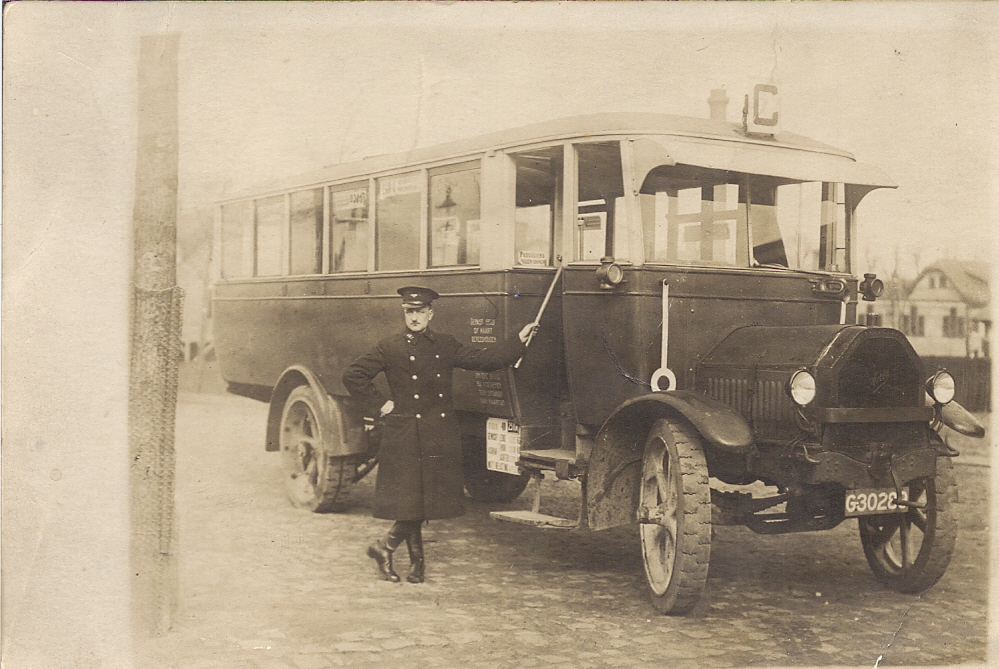 n shared a bedroom in a bottom-floor apartment that had an outdoor courtyard area. Han slept in a bed which was shut inside a closet during the day. Theo and Jan slept on a double bed which folded down at night, and was folded back up against the wall during the day (typical of beds in the Netherlands). When their father came in at night to give Jan a hiding, Jan would push Theo over so that he would get it instead.
n shared a bedroom in a bottom-floor apartment that had an outdoor courtyard area. Han slept in a bed which was shut inside a closet during the day. Theo and Jan slept on a double bed which folded down at night, and was folded back up against the wall during the day (typical of beds in the Netherlands). When their father came in at night to give Jan a hiding, Jan would push Theo over so that he would get it instead.
The children’s father loved birds & he kept pigeons. He was a bus-driver and would feed the pigeons on his hands when he was at the station. Their mother was raised on a farm (milking cows, etc).
The children had toilet-trained rabbits, a cat, and a pet duck. The duck went t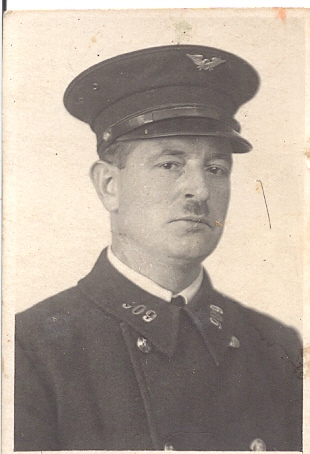 o the toilet on the doorstep (one day the duck was killed & eaten for their dinner – the children were told they were eating chicken & that the duck had “flown away”).
o the toilet on the doorstep (one day the duck was killed & eaten for their dinner – the children were told they were eating chicken & that the duck had “flown away”).
The children took fish from the stream near their house and put them into their pond. The fish could be eaten if they were big enough. Most were light brown, and the size of a hand. Eventually, the pond got overcrowded and the fish died. Once, their father found a dead body floating in the stream.
The children’s father told them that if they saved up their pocket money they could buy a donkey. So the children all saved their money until they had quite a bit – but their father took the money & spent all their savings on a gift for their mother.
Theo frequently brought stray dogs home with him. As soon as his father returned from work each day he would open the shed & release any dogs that his son had brought home. One day, however, the children’s father warmed to one of the dogs & the children were allowed to keep that dog as a pet.
Jews had to start wearing stars and Russians had to wear blue circles, for identification. Jewish people in their neighborhood began disappearing.
NB: 107,000 Jews in total were deported from the Netherlands between 1942 and 1944 (of them, it is estimated that only 5,000 survived). A further 30,000 Jews remained in the Netherlands, with many peopled aided by the Dutch underground (two-thirds of them survived the war). 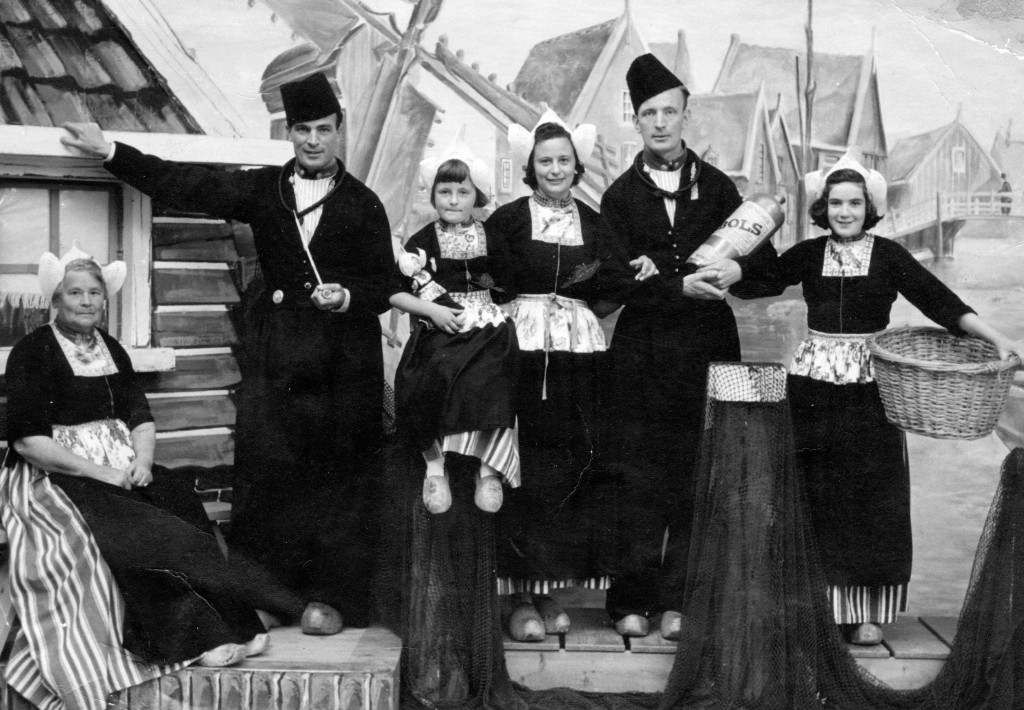
As a teenager, Theo worked by the Princess Canal in the Red Light District in Amsterdam – very close to where Ann Frank was hiding (possibly in the same building). He would ice-skate to work along the canal – he was fast and good at it. Ann Frank & her family moved into hiding in July 1942. Theo continued to work there for the next six months (until he was sent to do forced labour in Germany).
Towards the end of WWII there was a big food shortage in the Netherlands. Theo was in Germany during this time (doing forced labour), however his family’s pet cat disappeared during the food shortage (it was probably eaten), and at one stage a friend gave his sister Han some “cooked rabbit” to eat, telling her afterwards that it was actually a cat. She said it tasted good all the same.
FORCED LABOUR CAMP DURING WWII:
NB: During WWII, about 500,000 Dutch people were made to do forced labour in Germany (and 30,000 died during this forced labour). Thirty percent of the white-collar workers and laborers in the entire German economy at this time were foreigners who had been brought into the country mostly by force. Conditions were often very tough, and “an unknown number returned with permanent physical and psychological scars.” Theo found this period of his life very difficult, and he rarely talked about it.
In January 1943, at age 17, Theo was sent to do forced labour in Germany (he called this “slave labour”). Altogether, Theo spent about 2 years in forced labour and prison camps in Germany during the war.
Theo was sent to do forced labour either instead of his father, or because his boss informed on him. He obeyed, taking the train west across the border to Stuttgart as directed, because 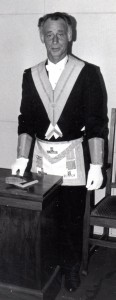 if he didn’t his family would have suffered.
if he didn’t his family would have suffered.
When he arrived at Stuttgart he was going to be sent to one factory but after a lot of arguing got sent to where his brother Jan was in Heidelberg. He arrived there in the Blackout and didn’t know where to go, so he spoke to a man on the street who turned out to be Dutch and worked with Jan, and he took Theo to Jan
The factory was located between Heidelberg and the river Neckar, and it was owned by Smith and Schaute. The owner was Jewish, and was no longer there (he had either been sent to a concentration camp or gone into hiding). It was an armament factory, but Theo didn’t know what the parts were for.
Theo’s job was to watch for fire-bombs dropped by planes onto roofs and go and put them out. He worked 12 hours on, 12 hours off, day and night, 7 days a week with one day off. Jan had a large lathe, Theo a smaller one. On night shifts the boss often mixed them up and sent them to the wrong lathes, they didn’t say anything.
Theo mostly worked night-shifts guarding the factory, and a man from the Ukraine worked day-shifts. The Ukrainian man’s uncle and cousin were considered traitors because they worked for the Germans. They needed the money and the food, so they worked as guards for the Germans to get extra food tokens.
Later on, Theo’s job changed & he painted lampshades (his boss then was very much in favour of the Germans). Theo learned to speak German, and some Russian. He read German books which he had previously read in Dutch so that he could learn the language.
The woman who fed them their meals never cooked enough food. When it was all finished she would joke, “I’ve cooked just enough food again!” Theo would trade his meat tokens for bread, with mothers and families, because bread was more filling than meat and there was more of it.
People told them that the woman’s prison camp in southwest Germany had their own private room and the prisoners were allowed to write letters. That was all lies.
After the war, German companies that had used forced labour during the war paid compensation to their forced labourers. The company Theo had worked for, however, had shut down and couldn’t pay Theo any compensation.
ATTEMPTED ESCAPE:
Theo’s brother (Jan), cousin, and one of their friends, successfully managed to escape the forced labour camp and return home. Back in the Netherlands, Jan joined the Underground (and after the war became a Sergeant in the Free Dutch Army).
Three weeks later Theo’s father sent him a letter, confirming that his broth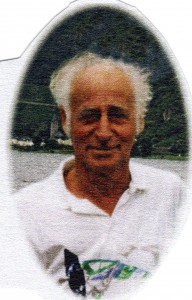 er had succeeded in escaping. Theo decided to try and escape too. He had been told he only needed a passport to get to neutral Switzerland(below Germany), but of course he found that he needed more. He decided against swimming the river which divided Germany and Switzerland because while many others had attempted it, only a few had succeeded in making it to Switzerland – most had drowned.
er had succeeded in escaping. Theo decided to try and escape too. He had been told he only needed a passport to get to neutral Switzerland(below Germany), but of course he found that he needed more. He decided against swimming the river which divided Germany and Switzerland because while many others had attempted it, only a few had succeeded in making it to Switzerland – most had drowned.
Theo took the train to escape back to Amsterdam. He was stopped and discovered twice, but was let off. The third time he was caught when his train arrived at a station, and this time they sent him to a prison camp.
PRISON CAMPS:
Theo spent the next 1 1/2 to 2 years in prison camps in Germany (until the end of the war). He knew that if he attempted to escape from any of them he would be shot, so he didn’t try.
The prisoners ate mainly swede soup, which Theo hated (after the war he couldn’t stand swede soup!) The prisoners were very hungry most of the time. They took turns excusing themselves to the toilet so that they could scavenge for food in the rubbish bins.
At one of the prison camps, there was a man named Pauki who played the bottles with a hammer (he played in the prison camp concerts). He had been a very talented musician before the war, and could learn any instrument in 5 minutes.
At one stage, Theo was accidentally sent to a concentration camp. At the concentration camp, the prisoners had to climb up netting attached to the sides of planes, and paint camouflage onto them. The netting had wide holes, and was very dangerous. There was no padding on the ground. Prisoners who fell through the netting onto the concrete would break their arms or legs and they were taken off and never seen again, presumably killed.
Theo knew that if he stayed at the concentration camp he wouldn’t survive, so after two weeks he worked up enough courage to tell someone that he’d been put in the concentration camp by mistake. As a result, they moved him to another prison camp instead.
FREE DUTCH ARMY (IN INDONESIA) AFTER WWII:
After being freed from the prison camps after the war, Theo returned to the Netherlands only to be conscripted into the Army. He served in the Dutch army in Indonesia for five years (aged 20-25) as a Sergeant. He had lots of free time and he loved to draw in a sketchbook which he kept. He drew pictures of the local Indonesian women in the rice fields, and pictures of the characters from the Disney film “Fantasia” (1940) – a film that he had seen recently & really enjoyed.
After Theo was allowed to leave the Dutch Army he was given the choice of whether to return to the Netherlands or to move to a different country. He didn’t want to return to the Netherlands because of the memories of the war, and because the Netherlands was still struggling to recover. He chose New Zealand, thinking it was a tropical country.
Theo arrived in New Zealand with very few belongings. When he arrived he was surprised how cold it was, and he didn’t have enough warm clothes with him. His brother Jan sent some of his things toNew Zealandfor him (including his coat). Theo also didn’t have any money because the money he had earned in the army was put into his Dutch bank account – and he couldn’t get it changed to aNew Zealandbank account back then. Jan bought some things with that money, when Theo asked, and posted them to him – including ice-skates (which Theo used to ice-skate in Alexander), and a white rain-coat.
Theo had learned English at school which helped, but it was school English which was different from real English, which made it difficult at first. When he first arrived inAuckland(where he spent two weeks) there were lots of Dutch people who arrived with him. They played cards for money on the train and spoke in Dutch – nobody understood them! It was fine to do in the Netherlands, but strange in New Zealand. When he started work there were no other Dutch people.
FAMILY:
Theo worked as a mechanic in Raglan, New Zealand (he also took his boat out & caught fish to sell to the local fish and chip shop). He married Hilda Scurr (from England) and they had three children (Robin, Gary & David). Theo was advised to not speak Dutch at home because it was thought that learning two languages would be too confusing for his children. He kept in contact with his Dutch family by phone, however he only returned to the Netherlands once (on a trip with his wife).

